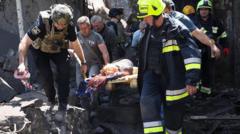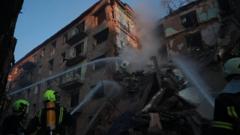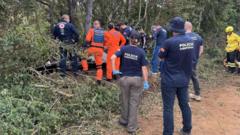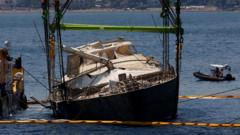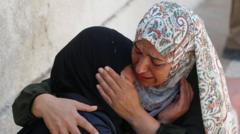As the dust settles in Sagaing, Myanmar, a scene of profound heartbreak and despair emerges following a devastating earthquake that claimed the lives of over 170 Muslims who were praying in local mosques last Friday. The tremor struck at 12:51 local time, resulting in the collapse of three mosques, including the Myoma mosque—the largest in the area.
Myanmar Earthquake: Imam Mourns the Loss of 170 Lives During Friday Prayers
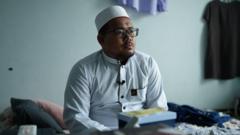
Myanmar Earthquake: Imam Mourns the Loss of 170 Lives During Friday Prayers
In the aftermath of a devastating quake in Sagaing, Myanmar, a former imam reflects on the tragic loss of friends and community members as they gathered for Ramadan prayers.
Former Myoma mosque imam Soe Nay Oo, who currently resides in Mae Sot, Thailand, felt the shockwaves of the quake that eradicated his community while he was miles away. In the days that followed, he learned that many of his loved ones, including relatives, friends, and congregants, perished in the disaster, leaving him overwhelmed with grief.
Soe Nay Oo shared his sorrow with the media, expressing his heartache for the victims, including children and leaders from the Muslim community who were lost. Eyewitness reports indicate that Myoma Street, where the mosques are situated, was severely damaged, leading to widespread homelessness and food shortages as survivors grapple with the aftermath.
The quake has left over 2,700 dead with the number expected to rise as search efforts continue. An estimated 500 Muslims are believed to have died while in prayer, a tragic event that now marks a somber Ramadan for the families affected. Compounding the devastation is the challenge of burial; many victims are delayed in receiving proper Islamic rites due to ongoing conflict in the region.
Despite the emotional turmoil, Soe Nay Oo remains resolute in helping those affected, coordinating rescue efforts and providing support to a community left in disarray. His poignant reflections reveal not only personal loss but the deep sense of collective grieving shared among those who lost so many lives during what was meant to be a holy observance.
As the survivors continue to seek refuge and aid, Soe Nay Oo's call reflects a shared hope for communal strength in overcoming this tragedy, even while managing the burden of survivor's guilt and the overwhelming sadness of his losses.
Soe Nay Oo shared his sorrow with the media, expressing his heartache for the victims, including children and leaders from the Muslim community who were lost. Eyewitness reports indicate that Myoma Street, where the mosques are situated, was severely damaged, leading to widespread homelessness and food shortages as survivors grapple with the aftermath.
The quake has left over 2,700 dead with the number expected to rise as search efforts continue. An estimated 500 Muslims are believed to have died while in prayer, a tragic event that now marks a somber Ramadan for the families affected. Compounding the devastation is the challenge of burial; many victims are delayed in receiving proper Islamic rites due to ongoing conflict in the region.
Despite the emotional turmoil, Soe Nay Oo remains resolute in helping those affected, coordinating rescue efforts and providing support to a community left in disarray. His poignant reflections reveal not only personal loss but the deep sense of collective grieving shared among those who lost so many lives during what was meant to be a holy observance.
As the survivors continue to seek refuge and aid, Soe Nay Oo's call reflects a shared hope for communal strength in overcoming this tragedy, even while managing the burden of survivor's guilt and the overwhelming sadness of his losses.




